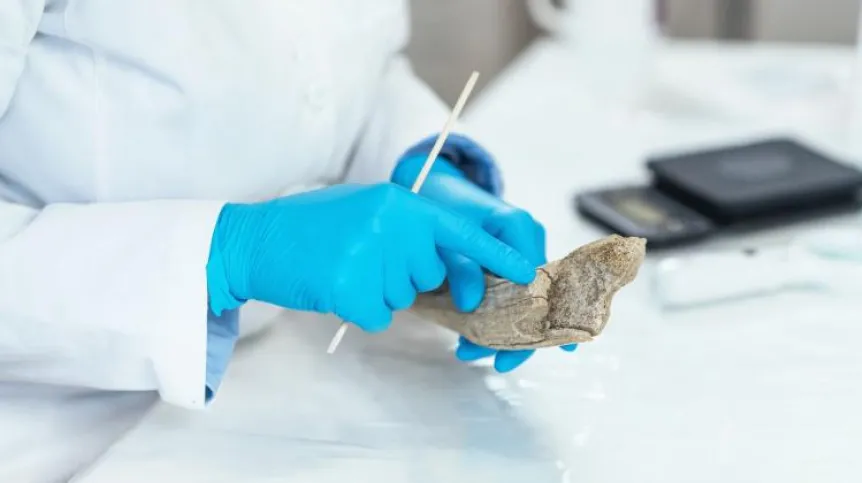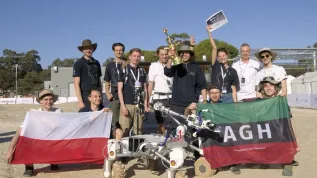
The Jagiellonian University in Kraków is preparing a new postgraduate course: forensic anthropology in practice. "This is the first course of study in Poland with this program" - says Anita Szczepanek, head of studies. Only a few people in Poland practice the profession of forensic anthropologist.
Dr. Anita Szczepanek, an archaeologist and anthropologist, told PAP that "today, in spite of high demand, there are only a few experts in this field, who have gained their knowledge at courses abroad, where forensic anthropologists have been trained for many years".
"Now those interested in forensic anthropology will be able to take a similar course in Poland, under the guidance of outstanding practitioners" - said the head of studies. "This is the first course in Poland with such a program" - she added.
So far, forensic anthropology has been one of the subjects in medical and forensic biology studies. In Poland, work similar to that of forensic anthropologists is performed by medical doctors and court biologists.
The Kraków university has prepared 26 places for students of post-graduate forensic anthropology in practice. If there are enough candidates, the course will be launched in the coming academic year.
The Jagiellonian University offer is addressed to graduates of medical faculties, anthropologists, archaeologists, lawyers, forensic technicians, policemen. Graduates will gain knowledge about anatomy and anthropology, about the research methods used in the identification of human remains during the investigation of contemporary criminal cases, victims of catastrophes and war crimes.
The study program prepared by the Jagiellonian University Medical College and the Polish Academy of Sciences in Kraków includes two thematic blocks: medical block containing forensic medicine with elements of traumatology and topographical anatomy; and methodological block containing methodology of exploratory and excavation archaeological research, forensic science, forensic entomology and archaeozoology. Course will be taught at facilities that will allow students to familiarize themselves with specialist research equipment during field activities.
The task of forensic anthropologist is to identify the analysed remains, especially those difficult to identify. Based on bone tests and other analyses, expert determines the age and sex of the victim. According to Szczepanek, individual features of anatomical structure sometimes allow for more precise identification. Helpful clues include traces of injuries, surgical or dental procedures. In this type of research, it is also important to determine the direct cause of death. A forensic anthropologist often works with a pathologist, an odontologist and investigators.
PAP - Science in Poland, Beata Kołodziej
bko/ agt/ kap/
tr. RL













